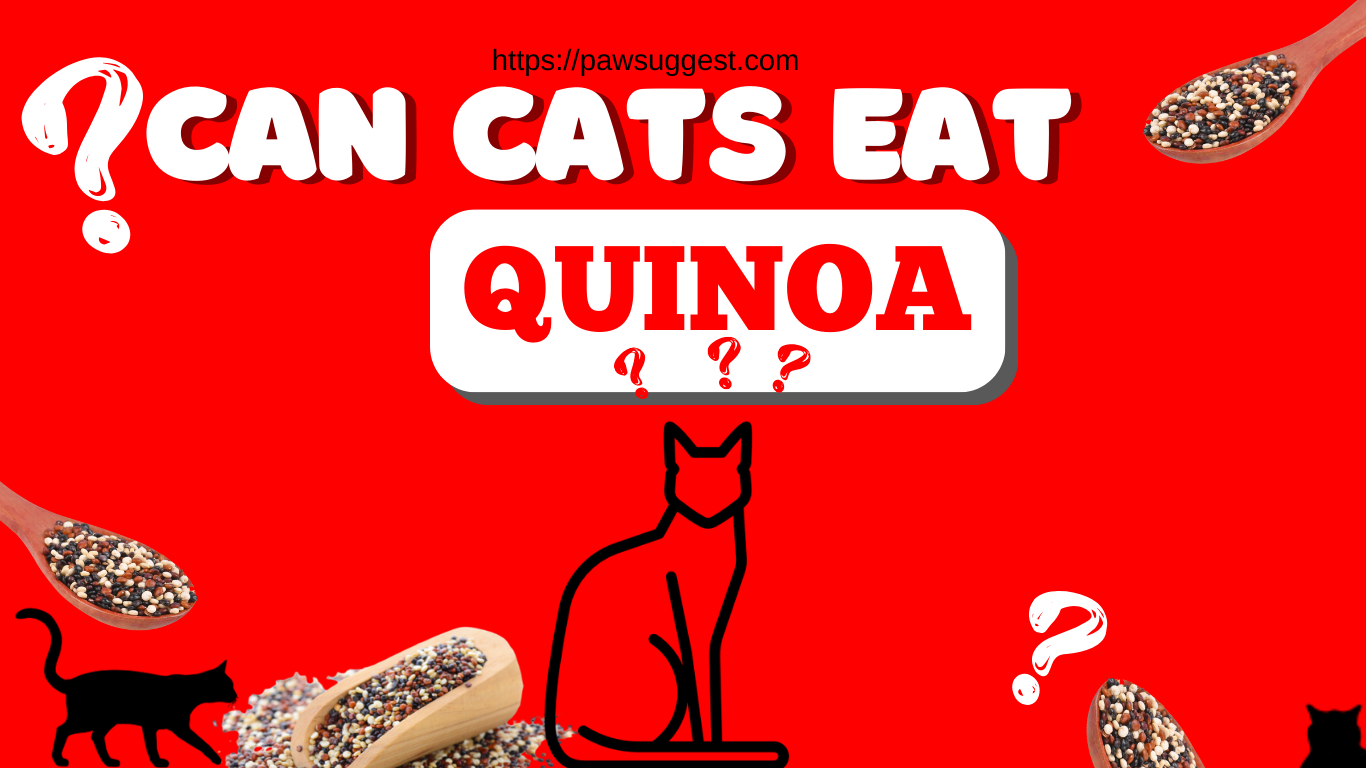
Cats are natural carnivores and always prefer meat over plant-based meals!
But there are some plant-related food items like Bok Choy that can be or should be fed to cats. Is quinoa one of them? Can your cat have quinoa?
Yes, there’s no harm in feeding quinoa to your cat. One of the best things about quinoa is that it is gluten-free.
There’s still much more to know about quinoa being permissible for cats because quinoa is not like meat and can’t be fed straightforwardly to an obligatory carnivore. So, let’s continue the discussion:
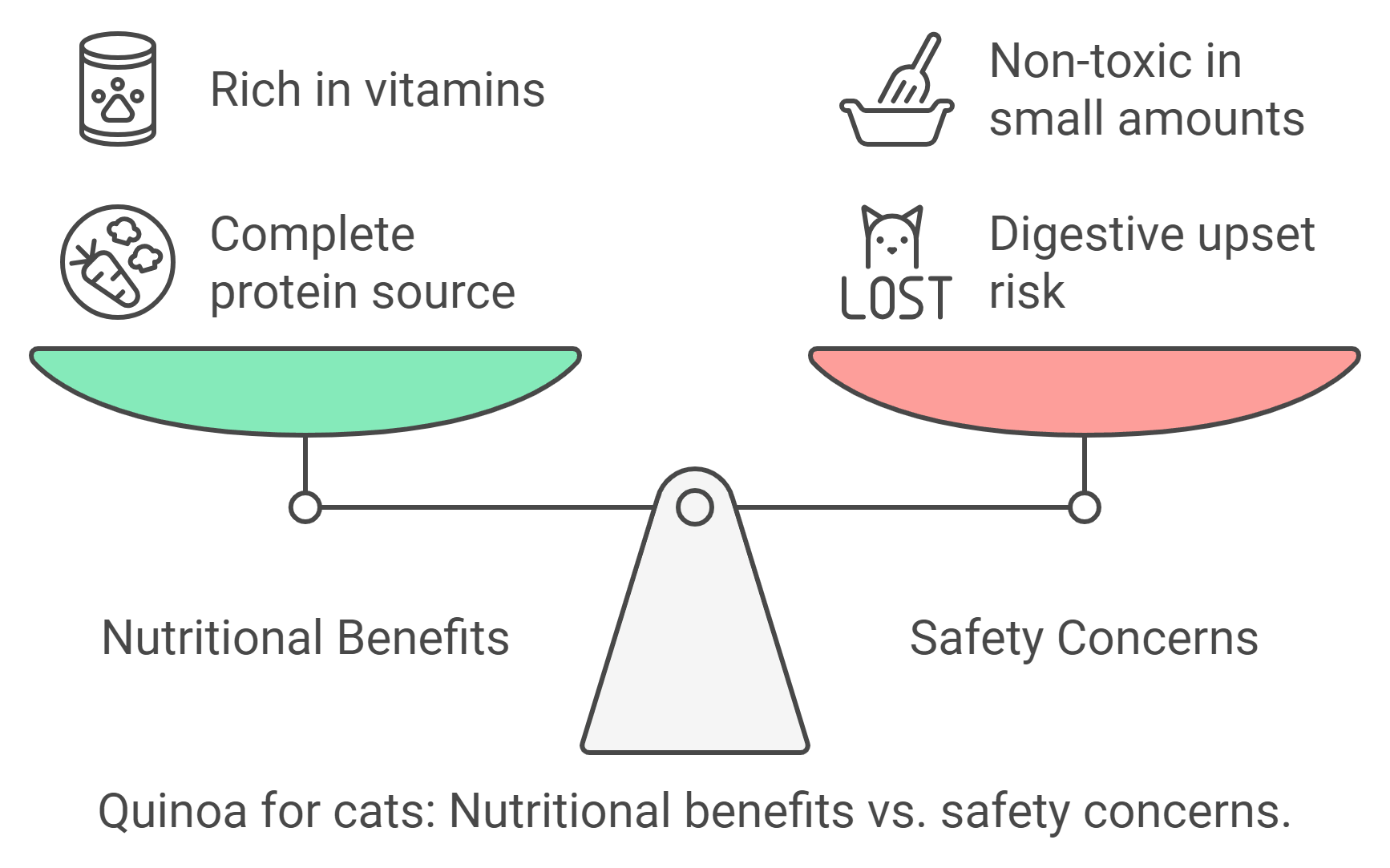
Is Quinoa Good for Cats? (Can You Feed it to Your Cat?)
[su_note note_color=”#72E8E1″ text_color=”#000000″ radius=”18″]Quinoa is extremely nutritious and hence, beneficial for both humans and cats. But a cat’s body is completely different from a human’s body. The prominent difference between both creatures’ bodies is that cats don’t really need carbs (being carnivores) while humans’ bodies are fond of them (being omnivores). Still, quinoa is an awesome snack for cats.[/su_note]

What is Quinoa?
Before jumping towards its relation with a cat’s stomach and body, it’s important to know what exactly quinoa is.
Quinoa is a kind of seed grown on quinoa plants mostly in the northwestern part of South America. It is a whole grain filled with loads of nutrients. Health-conscious people consume it instead of wheat and rice to stay healthier than the rest of the world.
Nutrition You Can Find in Quinoa
Here’s a table that’ll help you understand why quinoa is a wonderful snack for cats:
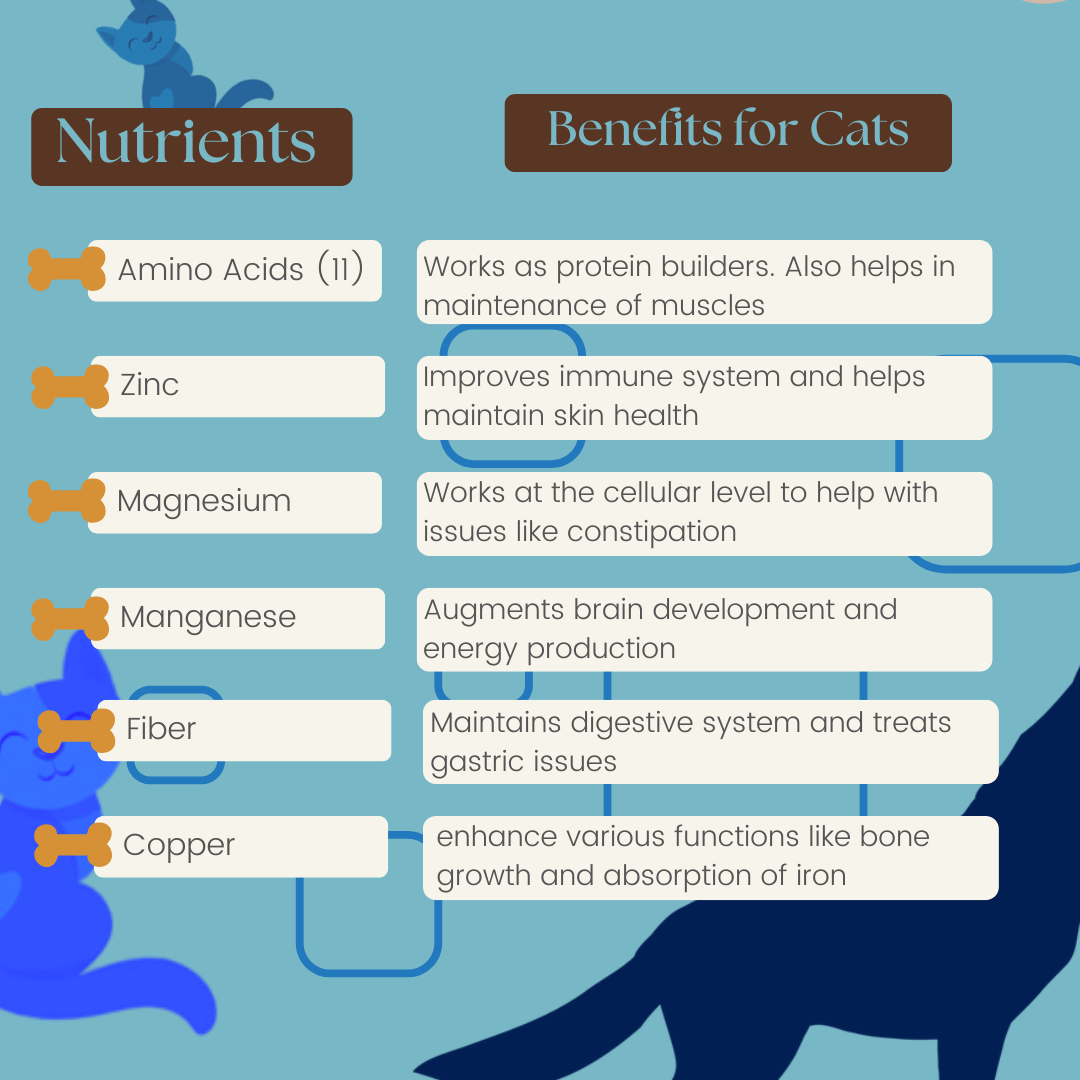
Health Benefits of Quinoa for Cats
You must be tired of just hearing that quinoa is rich in nutrients for cats. Hence, let’s jump into the reasons why everyone keeps talking about qualities of quinoa:
1. Rich in Fiber
Cats aren’t omnivores like us which is why they don’t really require fiber to be part of their everyday meal. But still, fiber is great for cats as it fulfills their hunger and keeps their tummy full for a good long time. Quinoa seeds are rich in fiber so you can go for them especially if your cat stays hungry for longer time than it should be.
2. Gluten-free
Yeah, quinoa is gluten-free!
But what does that mean and why is it important?
Humans these days usually chase gluten-free stuff to eat and it’s also beneficial for cats. Can’t understand why?
Actually, gluten-free means that the food is much easier to digest than the food with gluten. Furthermore, cat’s stomach is MUCH MORE vulnerable than humans which implies that gluten-free food is more important for cats than us.
3. Complete Protein
Having nine amino acids in a plant-based food is like a heaven for you as a cat parent. Moreover, all of these amino acids are those amino acids that our bodies can’t produce. That’s why quinoa seeds are famously called complete protein. Although, indeed, experts always suggest pet owners feed amino acids to their pets through animals, quinoa is still an exception (if fed properly and in lesser content).
4. Great Source of Minerals and Vitamins
Other than protein and fiber, quinoa seeds are also a great source of minerals and vitamins for cats. Here are some minerals and vitamins your feline can richly get from quinoa:
- B6 (works with sugar imbalance to achieve equilibrium)
- Magnesium (works at cellular level to fight against conditions like constipation)
- Iron (raises the levels of hemoglobin)
- Manganese (improve brain development)
- Copper (helps with bone growth)
Not just these, but quinoa also contains antioxidants that are responsible for reducing the risk of severe diseases like cancer and heart conditions.
How to Feed Quinoa to Your Cat?
Cats and their body behaviors are way more complicated than humans. For example, a few breeds of cats are capable of eating different kinds of grains as their daily meals. On the other hand, most cats can’t even digest 2 seeds of different grains.
Nonetheless, quinoa seeds are special because, unlike many vegetarian options, almost all breeds of cats can even consume quinoa seeds daily if a few seeds are added to their normal meal.
But after all, cats are obligate carnivores and being OBLIGATE carnivores, cats shouldn’t be fed anything other than meat frequently. Hence, here are a few considerations you must take before feeding quinoa seeds to your cat:
- The recipe for quinoa seeds shouldn’t be same for your cat. Usually, you would stir-fry quinoa seeds with some spices and stuff. But that recipe wouldn’t be ideal for your feline. Hence, it would be right if you give just plain (boiled) quinoa to your friend. Yes, it’s boring but it’s compulsory.
- Although there are not many restrictions when working with quinoa, it’s still recommended to go with whole–grain quinoa seeds. Because it’s better to get all important fibers (including dietary fibers) and micronutrients.
- Due to presence of fiber, your cat shouldn’t be allowed to consume quinoa seeds too much. Experts usually suggest one teaspoon and the best way of feeding quinoa to your cat is by adding it to cat’s ordinary meal now and then.
FAQs
Can my cat have uncooked quinoa?
No!
It’s a big no because your cat might not be able to digest raw quinoa. Additionally, it can cause gastrointestinal upset so go for boiled quinoa seeds.
What other seeds are good for cats?
Pumpkin seeds and chia seeds are two prominent seeds that are allowed to be fed to a cat. While poppy seeds and apple seeds are strictly prohibited.
How much quinoa is suitable for my cat?
One teaspoon is fine!
Quinoa contains fiber and cat’s stomach isn’t strong enough to digest too much fiber which is why you should just go with one teaspoon. However, after some time, if you feel your cat can bear more quinoa seeds, there’s no harm in increasing the amount (slowly).
Conclusion
Need a nutritious boost in your cat’s lazy life? Quinoa could be the way to go!
The most important thing to remember is that quinoa is a plant-based food and contains fiber that should be a complete part of a cat’s diet. So, don’t try to feed quinoa seeds to your every time just because it’s healthy. As we all know:


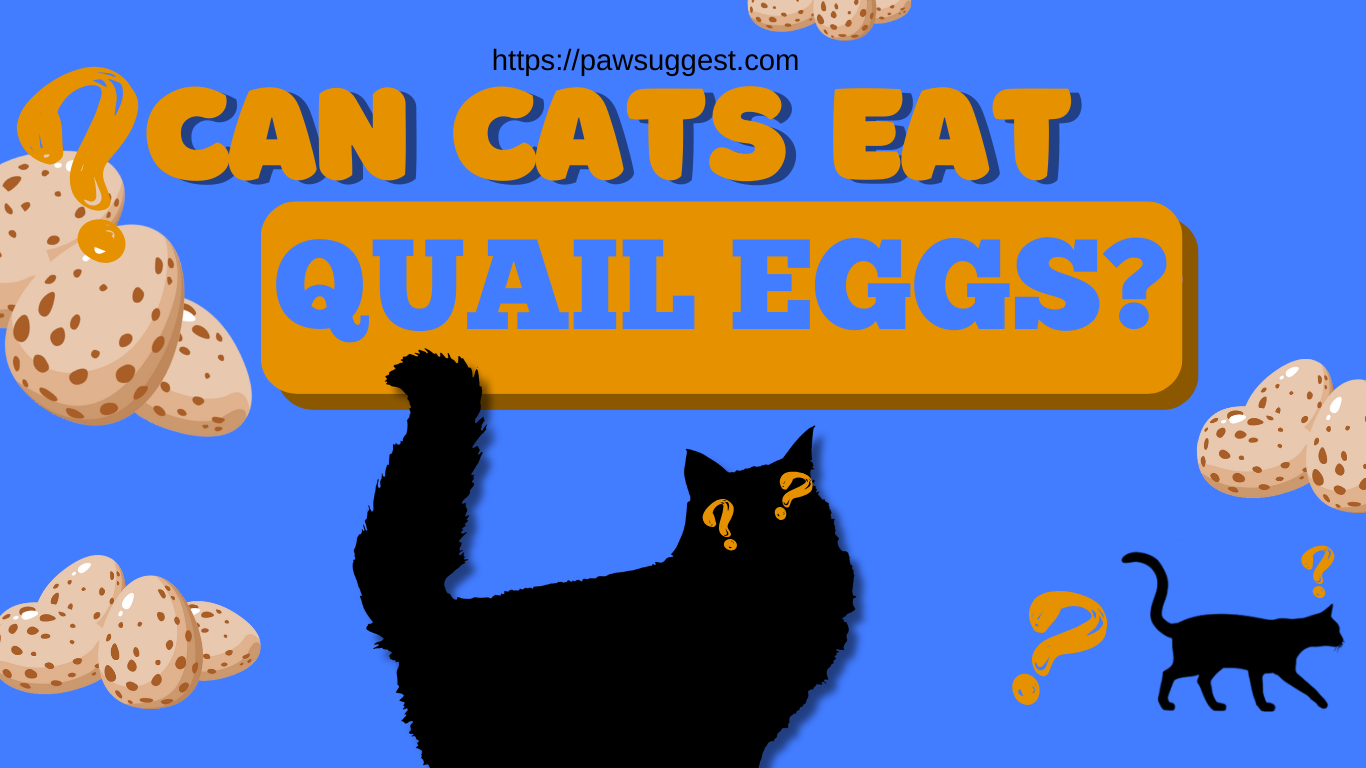

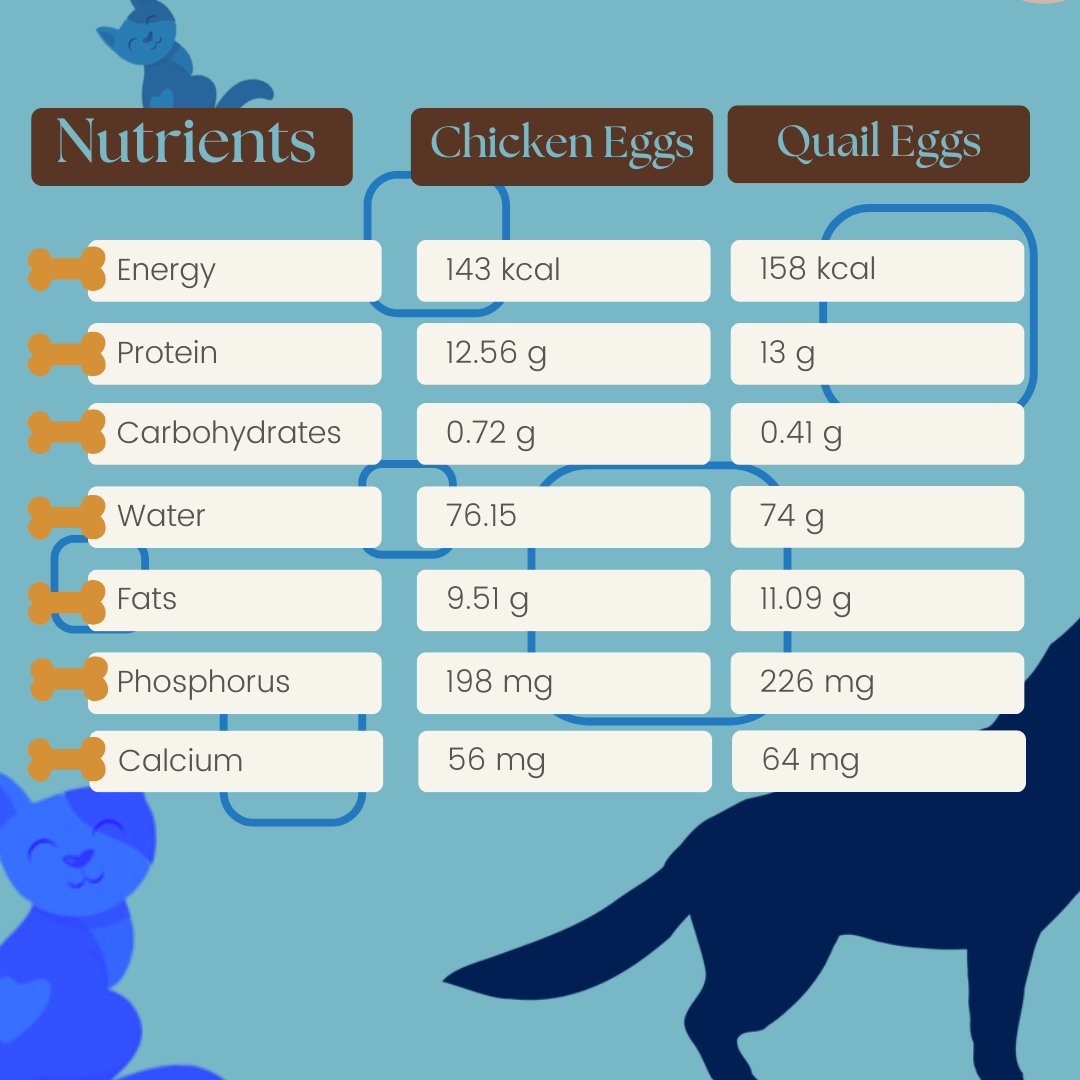 From what we can see from the table, quail eggs are way smaller than chicken eggs in size but are great in nutrition. Although chicken eggs are also always suggested for cats, still, we can still claim that quail eggs are much better.
From what we can see from the table, quail eggs are way smaller than chicken eggs in size but are great in nutrition. Although chicken eggs are also always suggested for cats, still, we can still claim that quail eggs are much better.



